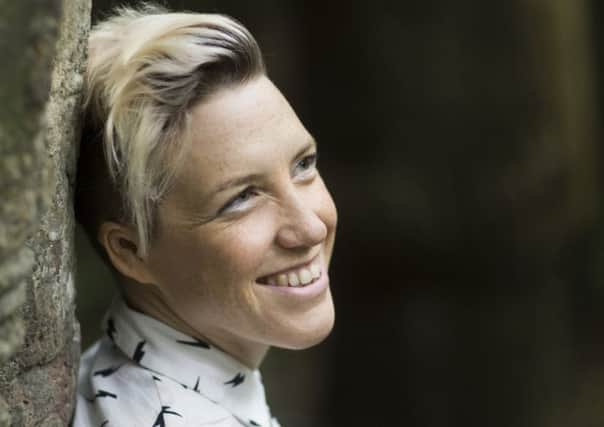Book review: Swansong, by Kerry Andrew


Swansong is narrated by Polly Vaughan, a young woman rapidly spiralling out of control. She is a student who has failed her exams, and there are a string of booze, sex and drug related incidents that have frayed her. Approaching complete burn-out, she travels to the Highlands to take on a housesitting holiday with her mother, and rapidly discovers you can find just as much booze, sex and drugs in the north of Scotland as the north of London. But you can also find something else, something eerie and something eldritch.
On her first night there she sees a gaunt, weather-bitten figure ripping apart a pheasant in the woods. Swan feathers appear on her bedside. Worst of all, she glimpses a white, nebulous thing in the loch and in the forest. As she cavorts with the local barman and his mates, she also begins a strange friendship with the hermitical – hermetical? – figure in the woods.
Advertisement
Hide AdThere are certain clear lines of continuity with contemporary Scottish fiction. Polly is a gobbier, sadder version of Alan Warner’s Morvern Callar or the schoolgirls of The Sopranos. The startling opening image of the figure in the woods dismembering a game bird (and Polly herself is a self-confessed game bird) echoes the folkloric gothic of a writer such as John Burnside or some of the more mythological poems of Robin Robertson. The novel has a subplot about inept rural criminals which is standard tartan noir. By intersecting the text with an unfixed, ghostly voice there seems a soupçon of Ali Smith; by patterning the story around a traditional ballad, it recollects Candia McWilliam or George Mackay Brown. The mysterious loner in the woods, more at home with trees than people, both noble and brutal, could have walked out of a Robin Jenkins novel. The descriptions of landscape – often done beautifully, and of which more anon – are similar to the sharp scrutiny that Amy Sackville or Meaghan Delahunt brings to their work.
Yet, though the ingredients may be familiar, the recipe is different. Cross-overs between naturalistic and supernatural are fairly common fare in Scottish writing, but it is done here with a singular elegance. There is a bit of a #MeToo consciousness in Polly’s forensic unpicking of the overlong looks, the simmering sense of threat – and she also has the resilience to be aware of this, even when other parts of her life are in disarray.
The feature that impressed me most about Swansong was the way in which the natural world, from the outset, is filtered through Polly’s metropolitan background. Time and again the metaphors and similes overlay the different worlds. Seaweed pops like bubble-wrap as she walks the shoreline. A deer is “Ugg-booted” with “anorexic ankles”. A rivulet is the colour of cider. The surface of the loch is a “glossy sheet of photo paper”. Birds have “turntable scratches” or sound like ringtones and flowers are the colour of Post-It notes or Love Hearts. With great subtlety, the registers begin to shift as Polly acclimatises to this new environment. There is a Robert Macfarlane-ish scene where she begins to learn the names of trees and mosses and birds and minerals. Not that that is a particular protection against things which are rightly nameless.
Swansong might have benefited from a slightly tighter edit. There are narrative points – such as Polly’s parents’ divorce and her autistic brother – which just might conceivably be there to give “reasons” for her going off the rails, but they don’t seem to go anywhere or advance the narrative.
There is a scene about internet dating with her mother that could easily have been cut. There are quite a few pop-culture references which I fear will date the book. Given its archetypal underpinning, I don’t see what is gained by name-dropping books by Markus Zusak or Mark Haddon, or references to The Hunger Games.
Polly is quite convincingly contemporary without such winks. Her “off the rails”-ness does have a narrative advantage, in that she herself wonders if the more inexplicable events are just the result of one joint or tab too many.
Advertisement
Hide AdAs she investigates the local stories, Polly consults a book. A local bore tells her, “But stories are pretty universal I should think… Oh, you know they’re all the same aren’t they, really? Doesn’t matter what part of the world they come from. Fear. Loss. Love. Lust.” That is a precise summation of what is best about this novel. Despite the grounding in a recognisable world, it conjures the oldness of stories.
Perhaps the novel’s finest characteristic is that it is concerned with how we become better. That isn’t through epiphanic moments in the double-greenness of the woods or in pagan rituals. It is in how one takes responsibility.
Swansong, by Kerry Andrew, Jonathan Cape, £14.99